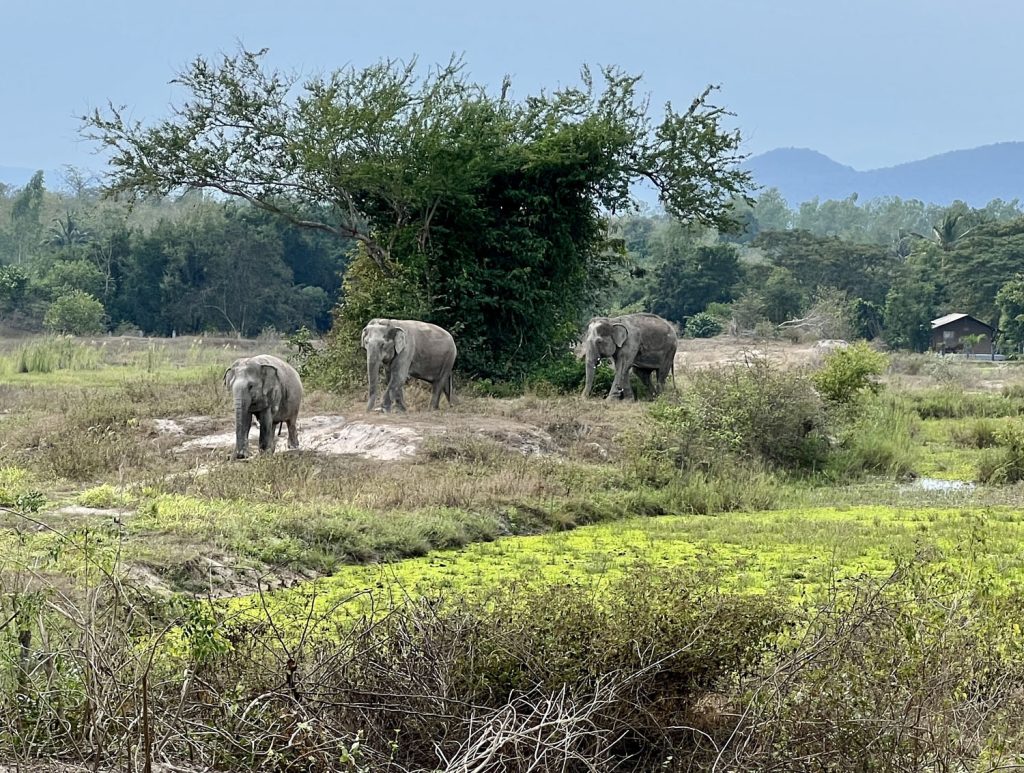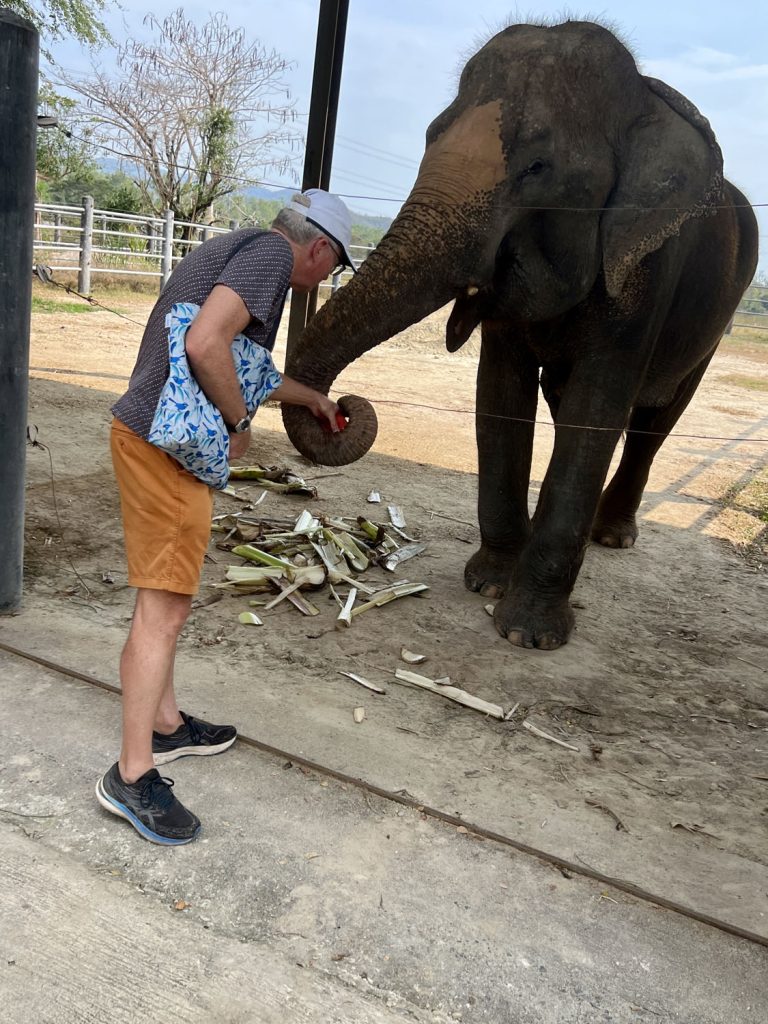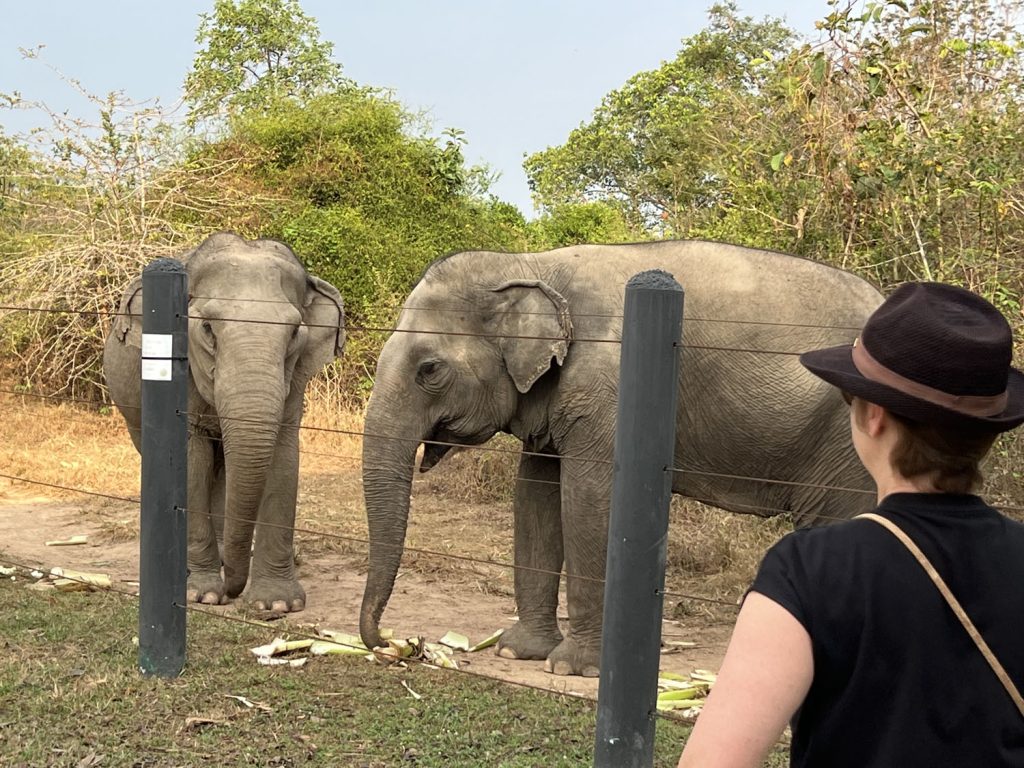‘It was a hobby that got out of hand’ says Edwin Wiek in perhaps the biggest understatement of the decade. Edwin is the founder of Wildlife Friends Foundation Thailand (WFFT), the largest animal rescue centre in South East Asia.
Situated a thirty-minute drive outside of Hua Hin, the refuge had humble beginnings when founded in 2001 but since then has grown exponentially to become a major player in the battle to provide animals who have been abused, injured, displaced or orphaned with a sanctuary where they can recover and rehabilitate before potentially being reintroduced to the wild.

The Centre now occupies an area of 200 hectares, 900 animals of 69 species call it home, and is the largest employer in the area offering 120 people employment working alongside up to 70 volunteers from around the world.
The standard of the animal enclosures is outstanding – it is as close to the animals’ natural habitat as I have seen in South East Asia; the knowledge and commitment of the staff to the animals is wonderful; and the care and consideration with which the animals are looked after is superb (and also very moving). I was also deeply impressed with the ability of the Foundation to respond to crises quickly and effectively. A large number of tiger enclosures have been constructed to provide homes to tigers urgently rescued from Phuket Zoo and from a breeding farm close to the Laos border over the last 18 months and signs of new development and construction is everywhere.


WFFT offers a whole range of ways to get involved and contribute to the running and viability of the rescue centre. They run half and full-day tours led by highly knowledgeable staff who bring the stories of individual animals to life.

You can also immerse yourself deeper in the experience by staying at the Foundation’s I Love Phants Lodge which we loved. The Lodge has a range of accommodation looking out over the animal enclosures and there is nothing like waking up to the calls of the white-handed gibbons starting their morning chatter.
Finally, for a really deep dive into the workings of the centre and its inhabitants you can volunteer. Volunteers come from all over the world and stay for one week to several months getting up close and dirty caring for the animals. It’s hard work but, according to the volunteers I talked to, deeply rewarding. The cost starts from 385 Euros for a week up to around 1900 Euros for 3 months.

Talking to the WFFT team gives you a real feeling of the conundrums they face in looking to improve the quality of life of the animals in Thailand. The first issue is that there are so many animals living in poor conditions, and with resources limited, which ones do you rescue? WFFT gives priority to old and sick animals.

Then there is the issue of people’s livelihoods. Some elephant owners depend on their elephants to generate funds from tourists to feed their families; coconut farmers rely on pig-tailed macaques to make coconut harvesting viable – the farmer him or herself simply would not be able to collect fast enough.
The answers are not simple and easy and hence WFFT is working with government, the local people, and other stakeholders to put in place long-term, structural solutions that provide a good outcome both for humans and the animals.
An additional issue is rehabilitation and release back into the wild. This is the dream scenario but only about 30% of the animals rescued have a chance of returning to their natural environment. Many of the animals are not indigenous to Thailand; others are born in captivity and have lost the ability to thrive in the wild, some would cause too much damage to their human neighbours, while others are too badly injured or traumatised to be able to have a chance to survive. These are at WFFT for life and a commitment to provide them with an enriching and wholesome quality of life is a costly process.

The good news is visiting, staying, sponsoring or donating are all great ways of playing your part.
I highly recommend staying and visiting the Wildlife Friends Foundation rescue centre and finding a way to contribute to the recovery and care of these wonderful animals – it is a great way to make a difference!
Jenny Littlewood is a travel writer at Little Wandering Wren who lived in Thailand from 2017 – 2022. More can be found on IG @littlewanderingwren and at www.littlewanderingwren.com
